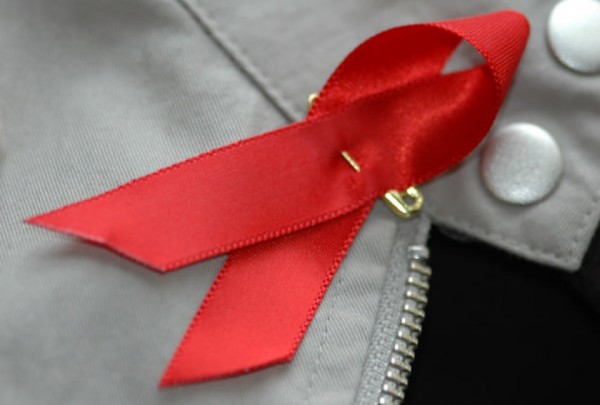Around 100,000 people are currently living with HIV in the UK, and 1 in 5 remain undiagnosed. In some parts of the world, up to 27% of the population lives with HIV. Even more worryingly, a quarter of those people don’t even know they have the virus.
Without a doubt these are worrying figures; however, today many scientific advances have been made in HIV treatment and we understand so much more about it.
World Aids Day which takes place on 1st December each year, is an opportunity to learn more about HIV and how it can be transmitted. As well as providing services on campus, the Terrence Higgins Trust provide HIV testing every Monday evening, between 5pm and 8pm on Quinton Road, Coventry. As well as wearing my red ribbon, I’m going to try and tackle some of the stigmas and myths that are often attached to HIV.
What is HIV?
It’s an immune system virus that significantly weakens the body’s capacity to fight infections or other illnesses. A person is considered to have AIDS when the body’s immune system becomes so weak it is incapable of fighting common infections or viruses that it would normally cope with.
What are some of the most common assumptions surrounding HIV and AIDS, and how accurate are they?
HIV only affects gay men
Worldwide 47% of people living with HIV or AIDS is women. Around 40% of those diagnosed in the UK last year acquired HIV heterosexually.
HIV is easily caught and transferred from those infected
HIV treatment significantly reduces the chances of transmitting the disease. HIV can be passed on through infected bodily fluids, most commonly via sex without a condom. It can also be caught by infected needles, syringes or other injecting drug equipment.
If I’m receiving treatment I cannot spread HIV
Whilst HIV treatments significantly reduce the chance of transmitting the disease, they do not remove the possibility completely. The only ways to prevent the spread of HIV is by practising safe sex, using a condom, and avoiding sharing injecting equipment.
You can only get HIV from penetrative sex
HIV is transmitted through bodily fluids, including blood, semen, breast milk and vaginal fluids. You should always use a latex barrier when engaging in any form of sexual contact, and avoid sharing needles and syringes.
HIV can be contracted through insect bites
HIV can only survive for a very short amount of time within an insect. In addition, insects only suck your blood when they bite – they do not inject blood or fluids from previous people they have bitten.
What can YOU do to raise awareness of HIV and combat any indifference?
Always use a condom when engaging in sexual activity of any kind!
If you have engaged in unprotected sexual activity at any point, and have not been tested for HIV or other sexually transmitted diseases, it’s quick, easy, confidential and completely free. Coventry and Warwickshire’s Sexual Health Clinic is located on the 3rd floor of walk-in centre on Stoney Stanton Road. They offer tests on a drop-in or appointment basis and open daily from 8:30am. Alternatively, why not come along to Coventry’s World Aids Day free testing in Millennium Square, city centre 12:30-16:30 on the 1st December?
Never share syringes or needles with anybody else
Dispose of these safely and responsibly in a sharps bin after use. New needles, syringes and sharps bins can be obtained through local needle exchange programmes, or your GP.
Wear a red ribbon or volunteer with your local HIV/AIDS charity
Red ribbons can be purchased from the National Aids Trust website. Wearing one raises visibility and awareness of HIV and AIDS and is a great way to show your support.
Now you know the top 5 misconceptions about HIV and AIDS, help combat misinformation and stigma by correcting someone next time you hear one of these myths been spread.






